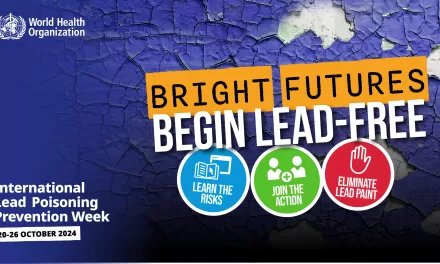As the world observes World Mental Health Day on October 10, experts have highlighted alarming concerns about the rise in behavioral issues among children, linking excessive screen time, trauma, and violence as significant contributors. The day, observed annually to raise awareness about mental health and combat stigma, has brought attention to growing challenges faced by the younger population.
Experts, including Dr. Shorouq Motwani, a psychiatrist at Lilavati Hospital in Mumbai, have noted a troubling increase in behavioral problems like aggression, anger, depression, and anxiety among children. These issues have become more prevalent in recent years, with factors such as stress, excessive screen time, and disruptions in daily routines playing a major role.
“Excessive screen time, trauma, and violence can induce behavioral changes in kids,” Dr. Motwani told IANS. “They may throw tantrums, become aggressive, anxious, have trouble sleeping, and experience depressive symptoms.”
Dr. Sameera S. Rao, a pediatrician and neonatologist, echoed these concerns, emphasizing the link between mental health issues and the evolving lifestyle of children. “Increased screen time, stress, and significant changes in routines have been contributing to a noticeable rise in behavioral issues in kids,” Dr. Rao said.
Common Behavioral Signs to Watch For
The experts identified several warning signs of behavioral distress in children. These include:
- Mood swings: Sudden emotional shifts, such as extreme irritability or anger.
- Aggression: Unexplained anger or violent outbursts.
- Physical complaints: Children may experience headaches or body aches without any physical illness.
- Self-harm and impulsivity: Behaviors like cutting or harming oneself, along with impulsive actions.
- Hyperactivity and inattention: Lack of focus, restlessness, and poor academic performance.
- Regressive behaviors: Returning to earlier developmental stages, such as bedwetting or thumb-sucking, can signal emotional distress.
Dr. Rao further emphasized that changes in eating or sleeping patterns, reluctance to attend school, or withdrawal from social activities are also key indicators of underlying mental health issues. Some children may develop compulsive behaviors, such as repetitive actions or rituals, which could point to anxiety or obsessive-compulsive disorder (OCD).
The Role of Parents and Early Intervention
Experts stress the importance of parents recognizing these early signs and addressing them promptly. “Parents should avoid yelling or using derogatory language when addressing their child’s behavior. It’s crucial to communicate with them to understand what is bothering them,” said Dr. Motwani.
Both experts agreed that early intervention plays a critical role in managing these behavioral changes. “If symptoms persist or worsen, it’s essential to consult a pediatrician or child psychologist,” Dr. Rao urged.
“Early professional intervention provides the necessary support to manage behavioral changes and promote mental well-being. Recognizing these signs early helps pave the way for recovery and balanced mental health,” she added.
In the face of rising mental health challenges among children, it is essential that both parents and caregivers remain vigilant, proactive, and supportive in addressing these issues, ensuring that children receive the guidance and help they need to thrive mentally and emotionally.












